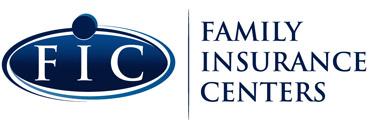Vacant Home Insurance: What It Is and When You Need It
 Do you have a piece of property that isn’t occupied full-time? If so, the right insurance coverage is vital. Unoccupied properties are at greater risk of damage or loss than any buildings or homes that are regularly used. But what is the right coverage? And what do you need to know about it? Here’s a short guide to vacant home insurance.
Do you have a piece of property that isn’t occupied full-time? If so, the right insurance coverage is vital. Unoccupied properties are at greater risk of damage or loss than any buildings or homes that are regularly used. But what is the right coverage? And what do you need to know about it? Here’s a short guide to vacant home insurance.
What Is Vacant or Unoccupied Home Insurance?
Any time a home (or another significant piece of real estate) will be unoccupied for at least a month, you may need additional coverage. This is because most homeowners insurance policies won’t cover a home that’s not currently being lived in.
Why does the insurance company care? Unoccupied buildings have a higher risk. Trespassers may get in. Damage may not be noticed until it intensifies. The structure may not be well maintained. And it may become a target for trouble. Vacant home insurance and its cousin, unoccupied home insurance, exist solely to fill this gap. You can get policies for as little as a month or as long as you need them.
When Should You Buy This Insurance?
Who needs vacant home insurance? The answer varies widely. Landlords may purchase it for a rental unit that spends any length of time unoccupied between tenants. You might buy it if you aren’t quite yet moving into a home you’ve bought. Snowbirds who spend part of the year in warmer climates may need to cover their unoccupied homes. And travelers may need added coverage if they’ll be away for a while.
Is There a Difference Between Vacant and Unoccupied?
There is, indeed, more than a technical difference between a place that’s vacant and one that’s unoccupied. Vacant homes are generally not currently outfitted for living. They often have little or no furnishings, may have no utilities turned on, and may be sealed or boarded up for security. An unoccupied home, on the other hand, could be lived in right now — however, no one currently is doing so.
Vacant homes provide a greater risk to the insurance carrier. The home may be known to be empty or not secure, resulting in a greater likelihood of trespassers or damage. If no one is checking on the home regularly, problems may not be found. And without active utilities, frozen pipes or fires are a bigger risk. For these reasons, insuring a truly vacant home may cost you more than one that’s simply unoccupied.
Where Do You Get This Insurance?
If you need some sort of unoccupied property coverage, where can you get it? You can actually purchase it through many major carriers. Policies cover a wide variety of dollar limits, triggering events, and covered items. With so much variety, you can shop around for the right coverage and the best price.
The two basic methods to buy this coverage are as a rider to your current homeowners coverage or as a standalone policy. Snowbirds or vacationers would likely find that adding the coverage to their regular policy is cost-effective and easy. However, someone renovating a home or dealing with some unused inherited property may not need to carry both homeowners insurance and a vacant home policy.
Where Can You Learn More?
Could a vacant home policy be a smart choice for your home or property? If so, start by learning more about how it works. Your local independent insurance agency can help you decide on the best route to take and compare policy options. Florida homeowners have relied on Family Insurance Centers for more than 35 years. Call today to make an appointment and discuss your particular needs.
